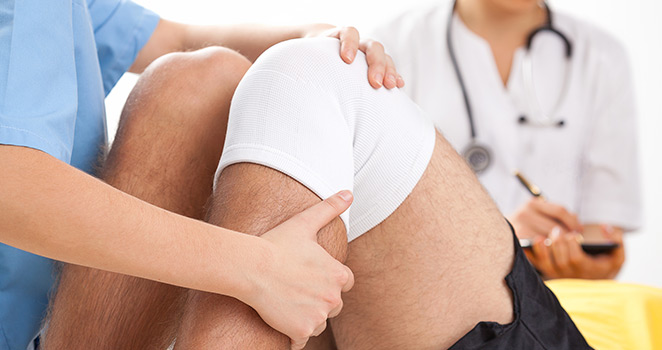Atrium Health Navicent Primary Care Internal and Family Medicine North Macon
School and Sports Physicals

Physical Exams are Necessary for Teen Sports
More than 38 million children and teens play one sport or more. Unfortunately, many of these children will be injured. Most of these injuries will be minor and the children will recover easily. Some, however, are serious. The danger of injuries is real, and it is important that children are prepared medically. One way to do this is to get a preliminary physical exam before any strenuous and extended physical activity.
Not only is it medically important for kids planning to play sports to get physicals, it is required by many states before the children can play school sports. In addition, many non-school sports organizations require that children wishing to participate prove they have recently had a sports physical.
Sports Physicals: What Exactly are They?
Sports physicals are markedly different from normal physicals. While general physicals are done to assess a person's overall health, sports physicals focus on orthopedics (joints and bones) and muscles. The doctor, usually a general practitioner, is looking for any conditions that may be aggravated by sports. The doctor will also look at the patient's medical history and try to find anything out of the ordinary.
For example, a history of serious heart disease may be cause for concern. A great deal of physical exertion can sometimes cause a sudden and massive heart attack, even in a young person. Obviously, this needs to be avoided at all costs.
The doctor may, at his or her discretion, bar the child from sports. This is generally only done in very serious cases, as physicians recognize that participating in sports is an important social activity for a child. However, the health and safety of the children are paramount.
Where Can a Child Get a Sports Physical?
There are many places where children can get sports physicals. Of course, they can go to their general practitioner's office. However, there are many other places were sports physicals are on offer. Many pharmacies, for example, provide sports physicals. While these physicals are accepted by most schools and sports organizations, they cannot take the place of general physicals performed by the child's general practitioner. Some schools offer physicals performed by medical professionals. This is especially common in schools located in disadvantaged areas.
When Should a Child Get Their Sports Physical?
Many parents put off the sports physical for as long as possible. However, this is not suggested, as it only delays issues, which can prevent the athlete from participating in their desired sports. It is smart to take the child to the doctor several weeks before the sport's season, so any physical conditions can be treated before the start of the activity.
What Happens During a Sports Physical
A sports physical starts with the physician taking a thorough medical history. The doctor will look at the patient's medical history and then ask many questions. The children will often have to fill out a health history form themselves. Younger children can have their parents fill out the form for them. Teenagers, however, have to fill out a separate form themselves. This is because the form asks questions about drug, alcohol, and tobacco use. It also often asks about sexual activity. Teenage kids are often reluctant to discuss these matters with their parents, but the doctor needs to know about these issues.
Conditions that May Disqualify a Child from Sports
Some conditions are so serious that the child must be banned completely from participating in sports. These conditions are generally aggravated by physical exertion, and some can be life threatening. Some of these conditions are asthma, shortness of breath, a history of concussions, heart problems, drug usage (both legal and illegal) and a family history of heart problems.
As previously mentioned in this article, the most serious concern is heart problems. There have been many recorded cases of young people having sudden massive heart attacks during sports. There are times when this happens with no warning, but usually, the child has a history of heart problems and the family has a history of heart disease.
The Physical Exam
After taking the information from the child and the child's parents, the doctor conducts a physical exam. They typically measure height and weight, take pulse and blood pressure readings, and check the heart and lungs. After they have completed this part of the exam, the doctor checks neurological functions like coordination, strength, and reflexes. They will sometimes test vision and hearing, but not all doctors do this. However, nearly all physicians performing a sports physical will check the sinuses and joints. Most will take urine and blood samples and check for hernias. Some will additionally administer immunizations, but not all doctors will do this for a sport physical.
The Final Determination
The health care professional will decide whether it is safe for the child to play sports, and will usually tell the child and parents together of their ruling. The determination may change depending on the sport being played. A child seeking to play golf will not have to pass the same standards as a child that wants to play football, for example.
Sometimes the physician will allow the child to play, but with some restrictions. A child with severe allergies may need to carry an epinephrine injector with them at all times in case of an attack. A child with asthma may need to have an inhaler on their person to ensure they do not suffer a severe attack from this condition, as it is often aggravated by physical activity. Children should get a new sport physical every season.